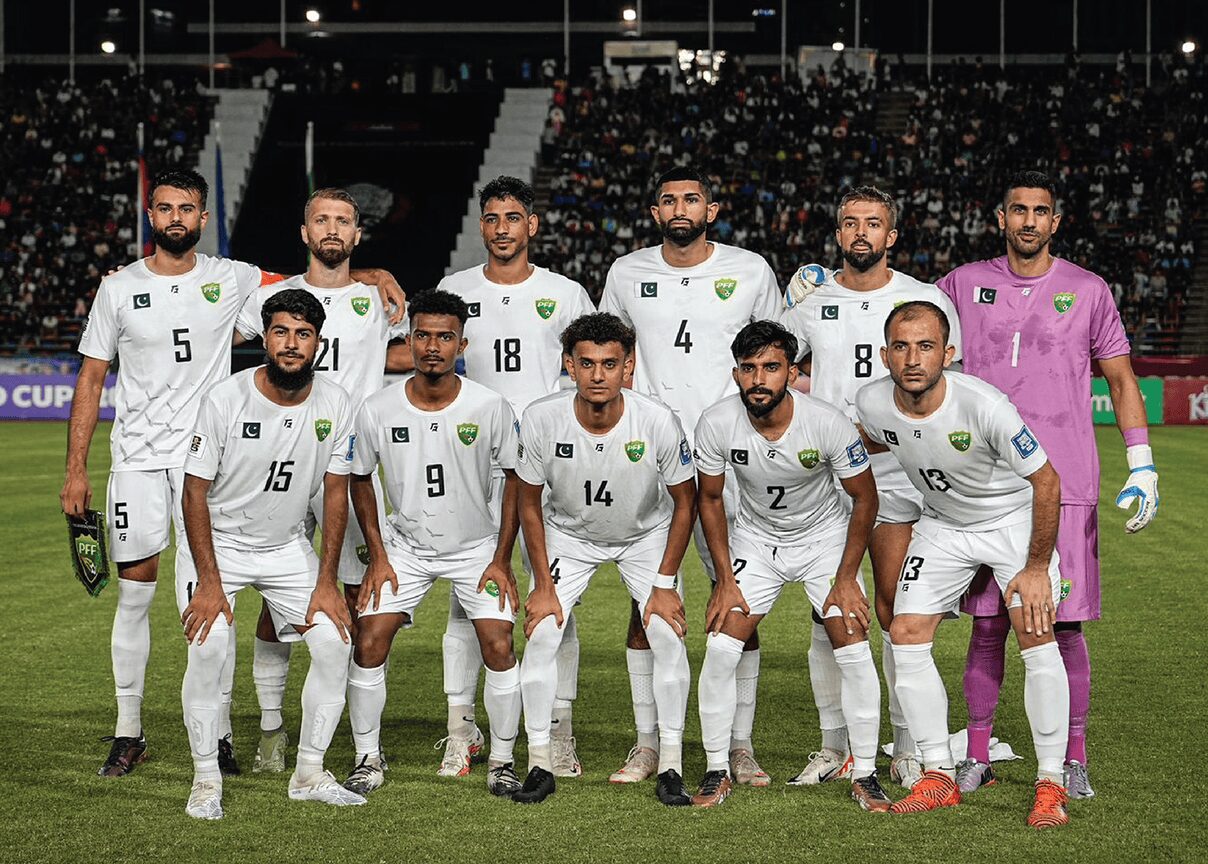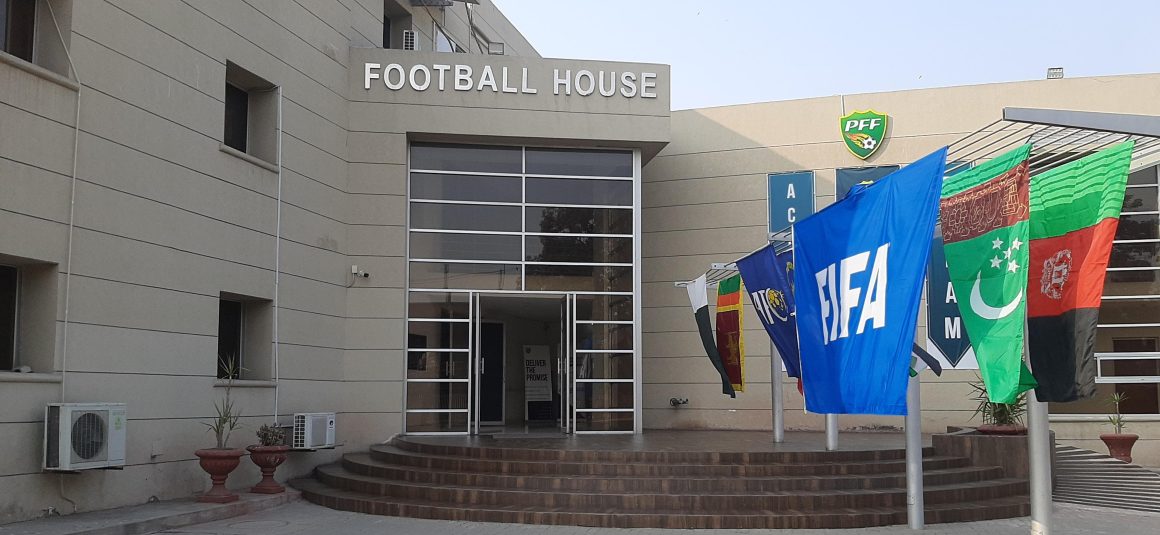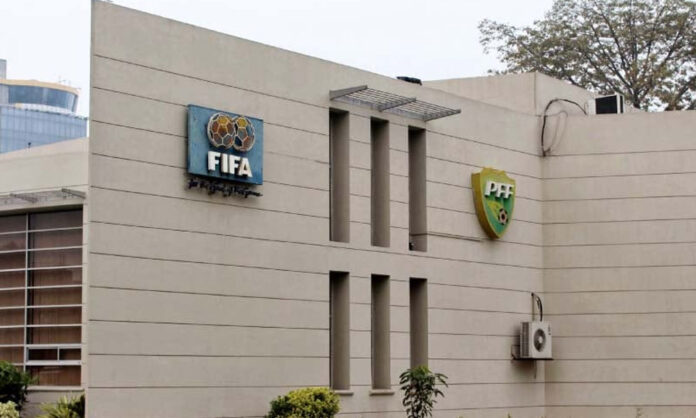Pakistan football finds itself entangled in a governance crisis that has far-reaching implications for the sport’s development in the country. At the heart of the dispute is the tension between the Pakistan Sports Board (PSB) and the Pakistan Football Federation (PFF) Normalization Committee (NC), appointed by FIFA in 2019 to resolve long-standing issues within Pakistan’s football ecosystem.
With both sides accusing each other of overreach, the question arises: what’s at stake for Pakistan football? Let’s break down the ongoing conflict and its implications.
The Genesis of the Normalization Committee
In June 2019, FIFA’s Bureau of the Council established the Normalization Committee to address the stagnation in Pakistan football, which had been in limbo since 2015. A joint FIFA/AFC fact-finding mission had concluded that only free, fair, and transparent elections could restore unity among football stakeholders.
Read More: PCB To Move Away From Foreign Coach And Appoint A Local Head Coach
The NC’s primary mandate was:
- Managing PFF’s daily affairs.
- Ensuring proper club registration and scrutiny.
- Drafting and ratifying an electoral code with FIFA and AFC’s guidance.
- Organizing district and provincial elections.
- Conducting elections for the new PFF executive committee.
While the NC was to act as a transitional body, its role was designed to be strictly temporary, with an original timeline of nine months. However, more than five years later, the NC is still at the helm, and tensions between stakeholders have only escalated.

PSB’s Allegations: Mandate Overstepped?
The PSB has raised serious concerns over the NC’s recent actions, particularly its decision to convene an extraordinary Congress meeting to amend the PFF Constitution. In its letter addressed to NC Chairman Haroon Malik, the PSB criticized these amendments as overstepping the NC’s transitional role, describing them as efforts to establish policymaking authority rather than focusing on facilitating elections.
Key points of contention include:
- Constitutional Amendments: Changes such as those proposed to Article 38 are seen as a deviation from the NC’s primary goal of restoring democratic governance. Critics argue that these amendments could undermine transparency and inclusiveness.
- Extraordinary Congress Meeting: The PSB has labeled the NC’s move to call a Congress meeting as unconstitutional, particularly given the absence of a recognized PFF President and notification of elected provincial office-bearers.
- Conflict of Interest Allegations: Haroon Malik’s portrayal of himself as PFF President and allegations of using constitutional amendments to make himself eligible for election have further fueled mistrust.
These accusations suggest a lack of accountability and transparency, eroding the trust of clubs, players, and stakeholders who had pinned their hopes on the NC.
The NC’s Perspective: FIFA’s Backing or Overreach?
From the NC’s standpoint, its actions are aimed at addressing structural deficiencies within Pakistan football. FIFA and AFC delegations’ involvement in the upcoming Congress could indicate that these amendments align with international governance standards. However, the lack of clear communication and stakeholder engagement has left room for skepticism.

While the NC’s defenders might argue that reforms are essential for modernizing football governance in Pakistan, the perception of unilateral decision-making has alienated key sections of the football community.
Implications for Pakistan Football
This power struggle is not just a bureaucratic tussle—it directly affects the future of football in Pakistan. Here’s what’s at stake:
- Delayed Elections: Prolonging the normalization process means football in Pakistan remains stuck in limbo. Clubs and players suffer as resources are diverted toward administrative disputes rather than grassroots development.
- FIFA’s Oversight: If FIFA perceives the NC as ineffective or the PSB as overbearing, it could lead to sanctions or even suspension. Such a scenario would further isolate Pakistan from international football.
- Loss of Trust: Both local stakeholders and international observers are likely to lose confidence in the process, jeopardizing long-term reforms.
The Way Forward: A Call for Collaboration
To resolve this crisis, a collaborative approach is essential. The NC must prioritize transparency and inclusivity, engaging stakeholders in meaningful dialogue to rebuild trust. Simultaneously, the PSB must support, rather than undermine, efforts to restore democratic governance within the PFF.
Read More: Dubai Welcomes Sania Mirza As Sports Ambassador
FIFA, as the overseeing authority, also has a critical role to play. Ensuring accountability and adherence to the NC’s original mandate is essential to avoid further delays and controversies.
Pakistan football stands at a crossroads. With the PSB and NC locked in conflict, the dreams of countless players, fans, and stakeholders hang in the balance. Restoring unity and focusing on the sport’s development should be the ultimate goal, as the country cannot afford to let administrative battles derail its footballing aspirations.
Stay tuned to Brandsynario for the latest news and updates.










































